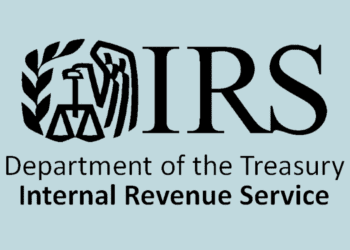Hobby or Business?
Apr 17, 2025 | Financial Matters,

by Sue Greenberg, VLAA executive director
Creatives often ask about deducting their business expenses when they are getting ready to file their Schedule C Profit or Loss from Business with their federal tax returns. Generally, if your business deductions exceed your income for the tax year, you can claim a loss, up to the amount of your taxable income from other sources.
What happens if an IRS auditor says your artistic endeavors are a hobby (with no deductions allowed)? That shouldn’t be a problem, assuming you can prove that you’re conducting your creative business with the clear intent of making a profit.
To make a convincing case with the auditor (because taxpayers bear the burden of proving profit motive), experts point to the factors the IRS uses to distinguish hobbyists from serious business owners. The list of “objective” and non-exclusive factors has been revised over the years. Happily, “whether you derive personal pleasure from the activity” has been dropped. The answers to these questions, published on the IRS website in 2024, should not only make a strong case if you’re audited but also help grow your creative business:
Does the time and effort they put into the activity show they intend to make a profit?
Keep a log or journal to document your to-do lists and work schedule. If you are devoting more time to your creative work, you can demonstrate your sincerity even if you are not currently a full-time artist. In fact, nothing requires an activity to be the taxpayer’s sole or principal occupation.
Does the activity make a profit in some years, and if so, how much profit does it make?
A long history of losses or small profits could hurt your case. Profitable years that appear artificially created could raise a red flag. So could a loss that results in a large tax benefit.
Can they expect to make a future profit from the appreciation of the assets used in the activity?
Unless you own a Stradivari violin or business-related assets like real estate, this factor may not apply to your creative businesses.
Do they depend on income from the activity for their livelihood?
An apparent need for the arts-related income will support your case. Conversely, wealth will not necessarily indicate lack of profit motive.
Are any losses due to circumstances beyond their control or are the losses normal for the startup phase of their type of business?
Gather evidence to show that your business is gaining traction and be prepared to explain uncontrollable events like fire, weather-related damage, or depressed market conditions.
Do they change their methods of operation to improve profitability?
Like a non-creative business, you should periodically review your expenses, pricing and/or fee structure, and marketing strategies. Make changes needed to improve profitability.
Do they carry out the activity in a businesslike manner and keep complete and accurate books and records?
Maintain complete records. You should have a separate bank account, credit card, and cash app for your business. Don’t co-mingle. If you plan on deducting business mileage, keep a contemporaneous log. Business cards, your website, a business email address, invoices, budgets, accurate and up-to-date bookkeeping, insurance, reasonable goals, and membership in professional associations are also construed as business-like behavior.
Do the taxpayer and their advisors have the knowledge needed to carry out the activity as a successful business?
Document your professional training, practices, and accomplishments. Consult with experts, such as lawyers and accountants, when appropriate.
If you’re audited, look at Churchman v. Commissioner [68 TC 696, 1977], a case that established a precedent for acceptance of artists as being in business without making a profit. Despite a history of losses, the artist was allowed to deduct sufficiently documented expenses.
Crile v. Commissioner [T.C. Memo 2014-202, October 2, 2014] was a victory for artists who teach. Susan Crile is a painter and a tenured professor of studio art. She attracted the IRS’s attention because of the large number of deductions she was taking for her art business. Crile has sold hundreds of pieces during the last 40 years and has work in 25 museum collections. But the IRS argued that teaching is her actual profession. The court ruled for Crile, noting that her day job was clearly a supplement to her main vocation of painting, not the other way around. Crile’s detailed recordkeeping, the time she devoted to producing and marketing her work and a clear profit motive helped persuade the court.
This post is designed to provide general information; it should not be utilized as a substitute for legal and/or accounting services. If legal advice or other expert assistance is required, please consult a professional.
